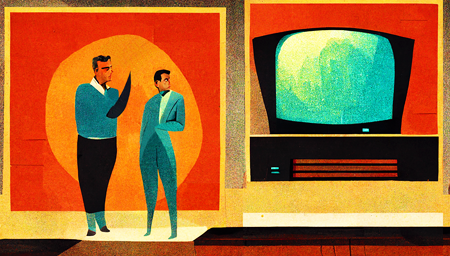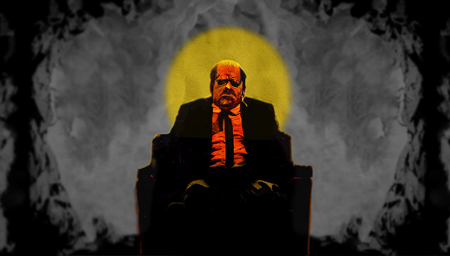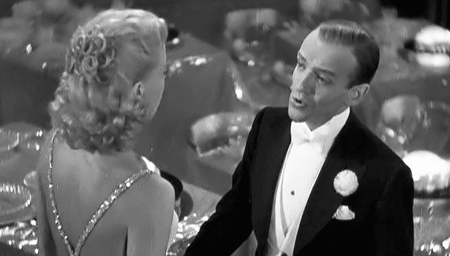also on cineluxe
Sign up for our monthly newsletter to stay up to date on Cineluxe
Against Burgers
A century of awards shows & marketing has created the myth of the high-quality movie but most films are on par with what you can pick up at a fast-food drive-thru
by Michael Gaughn
October 31, 2022
It’s not exactly a newsflash that a huge swath of the global populace, seduced by marketing and absurdly low prices, gorges itself on fast-food hamburgers. Or that any preferences burger eaters might have tend to be driven more by blind adherence than discernment. Most would be unable to convincingly articulate their reasons for preferring a Big Mac or Whopper or Monster Angus Burger or Big Bacon Cheddar Triple. The quality of the burger or how it’s physically presented has little impact on their opinion because quality and taste tend to run a distant whatever to almost every other consideration.
That’s not really all that different from how we consume mainstream movies. A steady diet of blockbusters is no healthier than a steady diet of super-sized hamburgers. Given that, what’s the value of reviewing movies—or of movie reviews—that are the equivalent of slinging beef?
You wouldn’t expect a website about fine dining to devote all its reviews to fast-food joints. And yet most sites that cover entertainment spaces and put any emphasis at all on gear tend to slobber over films that are the cinematic equivalent of junk food. And that’s because most of the people who write for and frequent these sites are gear enthusiasts who just want stuff that will look and sound good when it blows up on their systems. Indistinguishable from the ignorant bloviators who consume almost all the oxygen on social media, they’re not movie fans in any meaningful sense at all.
I suppose it’s conceivable that someone could come up with a blockbuster that significantly transcends its lowly origins or that a movie franchise could produce something other than empty calories—I’ll leave those arguments for another day—but I’d like to make the case for seeking out and savoring better fare. It doesn’t help that most contemporary filmmakers have become masters of conjuring up the illusion of substance or that audiences are willing to so eagerly buy into their scam. Think of it as the equivalent of going to a more upscale chain restaurant or coffeshop, businesses that thrive on the pretense that they offer something significantly better than their roadside brethren but really exist to be able to guarantee the exact same experience no matter which of their many locations you visit. Exhibiting individual flair or creativity is not only not required but is likely to get you run out of Dodge.
The pervasive ability of filmmakers to mimic “significant” gestures, to take something shallow and sophomoric and dab on enough touches that reek of art to make the gullible believe there’s more depth to their—in reality and very much deliberately—superficial work is a deeply troubling trend, partly because it makes it seem as if we have a substantial mainstream cinema. Sorry, but any industry whose first priority is to establish and sustain patronage levels that exceed McDonald’s, Burger King, Wendy’s, and Hardee’s combined can only create anything of real value purely by fluke—for the same reasons none of those chains will ever be able to produce subtly nuanced, flavorful dishes for the masses. These filmmakers are indistinguishable from con men, doing the equivalent of putting chopped chicken liver on a triple-patty faux-cheese white-bread abomination so the easily duped will believe they’re eating foie gras.
And then there’s the lingering influence of the moribund man cave. Spending tens of thousands of dollars—and often significantly more—to do nothing but create a kind of drive-up window in your home seems the height of absurdity—or maybe the most alarming sign of cultural decay. I’m not saying this is what always happens—and I know from experience that it’s not—but the possibility that we will come to inextricably conflate high resolution and massive screens and increasingly more elaborate surround with more and more mindless content—that we’ll substitute art (or, more accurately, the possibility of art) for all-consuming and ultimately numbing sensation generators ought to induce a pang if not a shudder. It’s the cultural equivalent of being super-sized, what ought to be the most sensitive and responsive part of your being become so calloused that what was once the pursuit of rich and diverse entertainment becomes nothing but a perfervid quest for an ever bigger thrill.
And what does this elaborately ground beef have to do with reviewing movies? Pretty much everything. “Garbage in / garbage out” pertains here just as much as it does in every other facet of life, and there’s something both farcical and tragic about the prospect of people creating six- and seven-figure garbage disposals and calling them theaters. The same discernment ought to pertain to movie night as it does to dining out but rarely does. When it comes to helping to expose people to movies, there ought to be a kind of responsibility to avoid the consensus-driven pile-ons that define most reviewing—Rotten Tomatoes has that kind of groupthink more than covered. The best thing we can all do for each other is to stop shouting out our preferences just to show what club we belong to—believe me, nobody cares whether you prefer Sonic to Jack in the Box or even Five Napkin—and instead share, rather than impose, our passions and our enthusiasms, and hope that our fervor, sincerely expressed, can open some eyes beyond the trivial and expand some palates beyond the bovine, and help lead to a cinema that’s both flavorful and satisfying and doesn’t taste like something that was shoved across the counter in a paper wrapper.
“Sorry, but any industry whose first priority is to establish and sustain patronage levels that exceed McDonald’s, Burger King, Wendy’s, and Hardee’s combined can only create anything of real value purely by fluke.”
“And what does this elaborately ground beef have to do with reviewing movies? Pretty much everything.”
Michael Gaughn—The Absolute Sound, The Perfect Vision, Wideband, Stereo Review, Sound & Vision, The Rayva Roundtable, marketing, product design, some theater designs, a couple TV shows, some commercials, and now this.
© 2023 Cineluxe LLC






